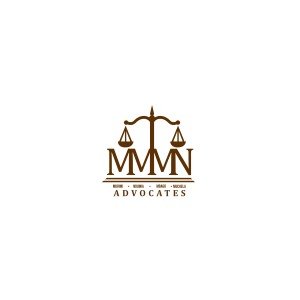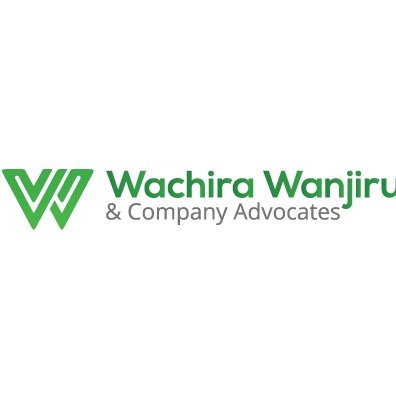Best International Trade Law Lawyers in Nakuru
Share your needs with us, get contacted by law firms.
Free. Takes 2 min.
List of the best lawyers in Nakuru, Kenya
About International Trade Law in Nakuru, Kenya
International Trade Law in Nakuru, Kenya, encompasses the regulations and legal frameworks that govern the import and export of goods and services across international borders. Nakuru, being a significant commercial hub in Kenya, follows both national and international guidelines to facilitate smooth trade transactions. The area is influenced by Kenya's overall trade policies which align with regional agreements such as the East African Community (EAC) and international guidelines set out by the World Trade Organization (WTO).
Why You May Need a Lawyer
Legal expertise in International Trade Law is crucial in various scenarios, including but not limited to the following:
- Negotiating and drafting trade agreements or contracts.
- Ensuring compliance with cross-border trade regulations and policies.
- Resolving disputes arising from international trade transactions.
- Understanding and securing intellectual property rights in international markets.
- Advising on tariffs, trade barriers, and customs procedures.
- Assisting with the legalities involved in setting up overseas operations or partnerships.
Local Laws Overview
Nakuru operates under Kenya's legal framework, outlined in several key statutes and regulations affecting international trade. Important legal instruments include:
- The East African Community Customs Management Act, which regulates customs operations within the EAC region.
- The Export Processing Zones Act, offering incentives and regulatory frameworks for businesses in designated export zones.
- The Trade Descriptions Act, which applies to various aspects of product labeling and marketing for exports.
- The Value Added Tax (VAT) Act, impacting the taxation of goods and services in trade activities.
- The Standards Act, ensuring goods comply with required quality standards both locally and internationally.
Frequently Asked Questions
1. What is the process for importing goods into Kenya?
The process involves several steps: obtaining necessary import licenses, ensuring compliance with Kenyan standards, engaging a licensed customs agent, submitting import documents to customs, and paying applicable duties and taxes.
2. Are there restrictions on the type of goods I can export from Nakuru?
Yes, certain goods are subject to restrictions or bans due to economic, health, or environmental considerations. It is vital to check the latest regulations with the relevant authorities.
3. How do trade tariffs affect my business?
Trade tariffs can increase the cost of importing goods, affecting your overall pricing and competitiveness. Seek legal advice to understand and possibly mitigate these costs.
4. What are non-tariff barriers, and how can they impact trade?
Non-tariff barriers include quality standards, import quotas, and licensing requirements that can restrict trade. They can increase operational complexity and costs for businesses engaged in international trade.
5. What role do trade agreements play in international trade?
Trade agreements facilitate international trade by reducing barriers, setting rules, and creating a predictable trading environment. Being aware of such agreements can provide competitive advantages.
6. How can I resolve a trade dispute with a foreign partner?
Trade disputes can be resolved through negotiation, mediation, arbitration, or litigation. Engaging a lawyer can help determine the most appropriate method based on legal grounds and practical considerations.
7. What are the legal considerations for international e-commerce?
Legal considerations include compliance with consumer protection laws, data privacy regulations, digital contracts, and cross-border shipping policies.
8. How does the WTO impact trade law in Kenya?
As a member of the WTO, Kenya adheres to internationally agreed rules and regulations, which include commitments to lower trade barriers and provide equal treatment to all member countries.
9. How can I protect my intellectual property in international trade?
Protection involves registering patents, trademarks, or copyrights in foreign jurisdictions, understanding local IP laws, and monitoring unauthorized use.
10. Is there support for businesses involved in international trade in Nakuru?
Yes, several governmental and non-governmental organizations provide support, including the Kenya Investment Authority, Export Promotion Council, and local chambers of commerce.
Additional Resources
For further assistance and in-depth understanding, consider reaching out to the following organizations:
- Kenya Revenue Authority (KRA) - For customs regulations and duties.
- Kenya Bureau of Standards (KEBS) - For product standards and quality requirements.
- Kenya National Chamber of Commerce and Industry (KNCCI) - For networking and trade facilitation.
- Export Promotion Council (EPC) - For export support and market research.
Next Steps
If you need legal assistance in International Trade Law in Nakuru, consider the following steps:
- Identify the specific legal issues or questions you need help with.
- Research and select a reputable law firm or legal expert specializing in International Trade Law in Nakuru.
- Prepare relevant documents and information related to your trade activities.
- Contact and schedule a consultation to discuss your needs and explore potential solutions.
- Ensure that you understand the legal fees and services offered before proceeding with legal representation.
Lawzana helps you find the best lawyers and law firms in Nakuru through a curated and pre-screened list of qualified legal professionals. Our platform offers rankings and detailed profiles of attorneys and law firms, allowing you to compare based on practice areas, including International Trade Law, experience, and client feedback.
Each profile includes a description of the firm's areas of practice, client reviews, team members and partners, year of establishment, spoken languages, office locations, contact information, social media presence, and any published articles or resources. Most firms on our platform speak English and are experienced in both local and international legal matters.
Get a quote from top-rated law firms in Nakuru, Kenya — quickly, securely, and without unnecessary hassle.
Disclaimer:
The information provided on this page is for general informational purposes only and does not constitute legal advice. While we strive to ensure the accuracy and relevance of the content, legal information may change over time, and interpretations of the law can vary. You should always consult with a qualified legal professional for advice specific to your situation.
We disclaim all liability for actions taken or not taken based on the content of this page. If you believe any information is incorrect or outdated, please contact us, and we will review and update it where appropriate.
















